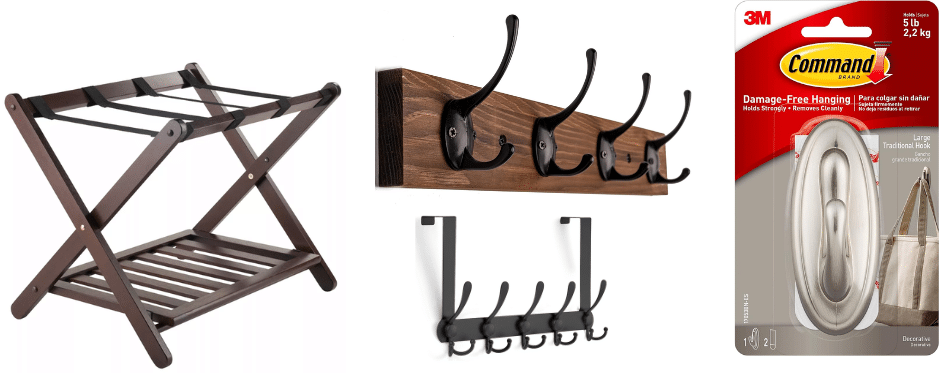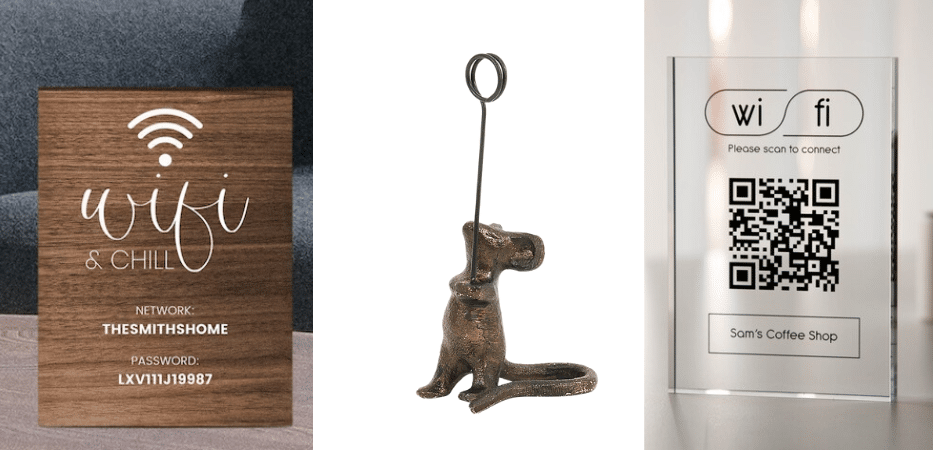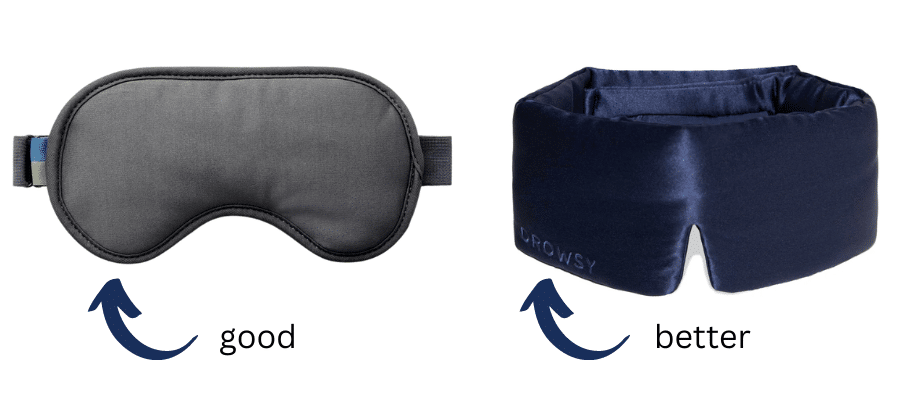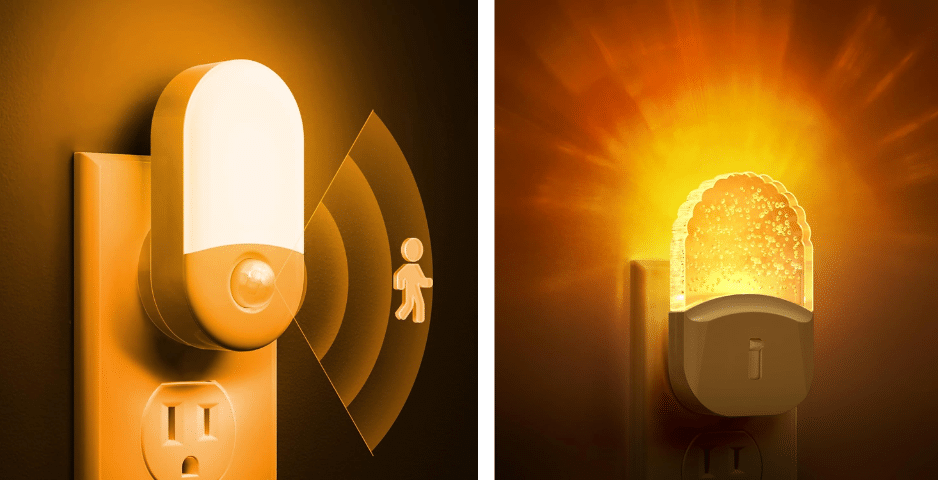Last year, some friends invited us for dinner and an overnight at their new home. They live a good 30 minutes away, so the idea of spending the night was welcome. While I have occasional overnight visits from friends and family and have always thought I did a pretty good job of providing my guests with “essentials”, our friends proved that I had a lot to learn. From the moment we entered their guest room, we felt like they had eagerly anticipated our stay and had provided not only thoughtful items like phone chargers but also fun things like a goodie bag. (!) Since then, I have become much more proficient in preparing my home for guests, and I hope this guide will help you too – especially with the holidays just around the corner. Trying to leave no comfort stone unturned, here are 14 essentials for hosting overnight guests.
1. Welcome
No matter if they are friends or family, there’s always a moment of awkwardness at first. After all, your guests are staying in a relatively unfamiliar place unused to how your household works and runs. As host, you want to dispel any discomfort by making your welcome as warm and comforting as a good hug. Show your guests to their room, where to put their suitcases and unpacked clothes, and give them a quick tour of where to find everything they may need. A small container of fresh flowers is always a thoughtful and welcoming touch.
2. Unpack
Consider having a luggage rack on hand. Not only will it be a nice convenience for your guests, but trust me, you’ll use it every time you pack for a trip. It’s a much better option than putting dirty suitcases (and if you ever check your luggage when flying, you know how filthy your bags get) on a nice clean bed. Plus, most luggage racks fold for easy storage behind the door or under the bed. Guests may want to “live” out of their suitcase but do provide a few hangers along with a spot for hanging. Because my spare bedroom closet is filled with my off-season clothing, I installed hooks on the back of the bedroom door. If you’re a renter, you may want to consider using Command Strip hooks, a single over-the-door hook, or a multi over-the-door hook to avoid any damage to the door (unless you plan to leave those nice hooks behind for the next renter 😊).
3. Sleep
A freshly made bed is a must. While I don’t typically iron sheets, I do iron the pillowcases for my guests. Maybe I’m nuts, but I find an ironed pillowcase softer against the face than a wrinkled one. Find the best sheets according to The New York Times Wirecutter, which rates all kinds of stuff. Their recommended on-a-budget sheets are from Target at just $55 for a queen set. And don’t underestimate the importance of a decent pillow. While some folks seem to manage sleeping on even the flattest, hardest pillows, treat your guests to a truly comfortable pillow. A decent pillow doesn’t need to be expensive, and it’s probably best to avoid feather or down anyway because of possible allergies. Target has these and Amazon has this two-pack of down-alternative pillows.
If you don’t have a guest room, a quality air mattress, a support board for your sleeper sofa, and compressible pillows can still provide your guests with a great rest. Don’t forget a cozy blanket!
For more tips on giving your guests blissful rest, check out our post on Getting A Great Night’s Sleep.
4. Bathe
If your guests are just spending the night, they may not need the same supplies as visitors who will be staying for a few days. Still, it’s a good idea to be fully prepared…just in case. Have a full set (bath towel, hand towel, washcloth) for each person. For anyone with a headful of hair that might wash it, two bath towels. If your friend forgets their toiletry bag, have new toothbrushes, toothpaste, make-up wipes, soap, body lotion, shampoo, and conditioner at the ready. And let your guests know where wet towels should be hung. Make sure there is actually a spot for wet towels! I stayed at a relative’s home, and it was obvious that the decorative towels in the bathroom were just there to be pretty. There was nowhere else for my wet towel except the doorknob. Ugh.
5. WiFi
A small sign with your WiFi name and password will be appreciated by your guests so they don’t need to hunt you down to get it. There are many fun options to display this information, like a tabletop sign, a sign with a QR code, or make your own sign and display it on a cute cast iron mouse card holder.
6. Hydrate
Always have bottled water or a stylish bedside table water carafe/glass set on the nightstand or within arm’s reach if using an air mattress or sofa bed. I don’t know about you, but I always get thirsty during the night (just like a little kid).
7. Recharge
Your guests will so appreciate finding a charger for their device available for use. It’s one of those things that’s so easy to forget to pack. Purchase chargers with extra-long cords and place one on each nightstand, try a universal charger, or get a cordless charger that can charge multiple devices at once.
8. Light
According to the Sleep Foundation, a dark room is recommended for the best rest. But sometimes our guest spaces don’t have room-darkening shades, the curtains or blinds don’t fully prevent light from seeping in, or there may be a bright street light outside that spills into the room. Consider having inexpensive sleep masks on hand, or splurge on luxury washable masks.
Although trying to keep the room dark, do provide a nightlight that will gently illuminate the path to the bathroom. A motion sensor nightlight is a perfect addition to the hall. And do keep a nightlight in the bathroom itself so your guests won’t need to turn on the bright harsh bathroom lighting in the middle of the night to use the facilities. Consider one like this pretty, dimmable light.
9. Noise
Hoffman Audiology advises that a disturbed night’s sleep can lead to sleepiness and irritability in the short term (and who wants grumpy guests?). There are several different ways you can ensure your guests will rest without noise interruption by offering:
- A fan. We have friends who bring their own fan (mostly to cover up snoring) wherever they go. That’s a really big bring-along, so I like to provide either a tabletop fan or a large floor fan that easily stores under the bed. Not only can a fan help cover up any background noises, but it can also aid your guest in regulating the temperature in the room.
- Earplugs. My fella sleeps with earplugs daily and swears they are key in helping him fall asleep easily. They are easy to buy in bulk making them an inexpensive option for your guests’ quiet enjoyment of the night.
- White noise machine. A white noise machine does not need to cost a fortune! Target carries a Sharper Image product for just $14.99. The New York Times Wirecutter recommends this one as an upgrade.
10. Temperature
Extremes in temperature can ruin bedtime. But even small shifts can mean the difference between a smooth transition into dreamland or a fitful night’s sleep. The common recommendation for a good ambient temperature for sleeping is in the range of 60 to 67 degrees Fahrenheit. A fan will help your overnighter cool things down, but what if they’re too chilly?
- These calming sleep socks would be a luxurious gift for perpetually cold friends. Or buy a three-pack of nubby socks your guests can also use as slippers.
- Add a throw to the bed. Here is a list of the best including options for all seasons and price ranges.
11. Goodie Bag
My favorite find in a guest room was a goodie bag prepared by our hosts with our tastes in mind. So thoughtful, and so fun! Pack a small gift bag with individual-sized packets of chips, sweets, and nuts. Think salty, sweet, crunchy chewy. Throw in a miniature bottle of your guest’s favorite adult beverages, or a can/bottle of their preferred soda or juice. Your guests will think you are the host with the most!
12. House Rules
After your guests unpack, let them know your house rules:
- Are all items in the fridge, pantry, and bar up for grabs?
- What time will breakfast be served (if at all)?
- Are they allowed to feed the dog snacks?
- If they arise first, can they make coffee?
- Should they strip the bed on the last morning of their stay?
13. Breakfast
If you plan on offering breakfast, it makes it much easier for you and your guests if you’ve prepared in advance. For a continental breakfast, try this delicious homemade banana bread, donuts, or muffins with fresh fruit and coffee. Maybe some yogurt and granola. For something more substantial, but still very easy to serve in the morning (just heat and eat!), try our Christmas Strata which is quite satisfying any time of year and can be made the day before and will most assuredly wow your guests.
14. Sanctuary
As host, your goal is to create a sanctuary for your guests – not just a place to sleep, but also a place where they can sneak away if needed for a nap, a quiet conversation, to take a call, or to take a break from socializing. Follow our guide and you will master successfully hosting overnight guests, the essentials, and more. Happy hosting, and happy holidays!










